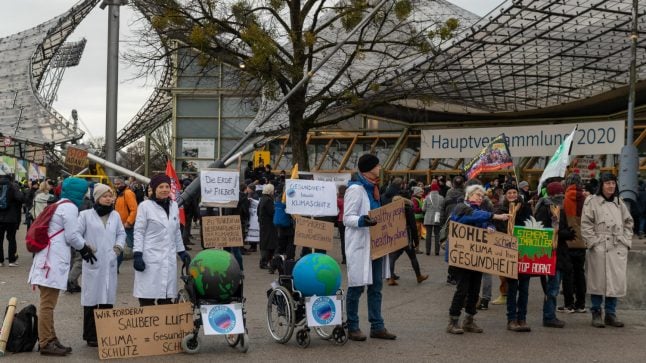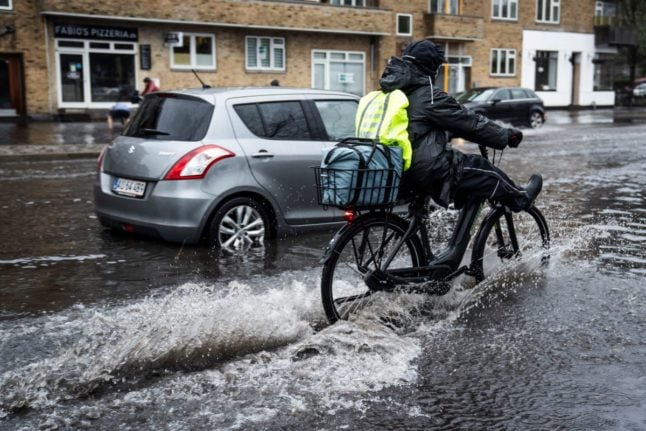Outraged by the group's sticking to a contract to supply rail equipment to a massive Australian coal mining project, demonstrators were rallying outside the Munich Olympiahalle ahead of the 10:00am kickoff.
A group of around 100 were on the scene from early in the morning, some forming a human chain.
Late Tuesday, Greenpeace had draped a banner from the company's headquarters reading “Bush fires start here”.
“We will continue our protests for as long as Siemens doesn't back down,” said Helena Marschall, a representative of the movement, at a Tuesday press conference.
Marschall herself is slated to speak inside the venue later Wednesday, while the demonstrators plan to urge the company to “abandon coal” at a larger protest in the afternoon.
Kaeser kept activists and observers on tenterhooks for weeks as he decided whether to uphold a contract with India's Adani group related to its Carmichael mine project in Australia.
In the end, he stuck to Siemens' agreement to supply the rail signalling equipment for the massive open-cast mine, not far from the iconic natural landmark of the Great Barrier Reef.
READ ALSO: Outrage in Germany as Siemens back Aussie mine project
'Fulfil contractual obligations'
Groups like Extinction Rebellion and Fridays for Future have homed in on the shareholder meeting as an opportunity to renew the pressure on Siemens.
“What's more important: a small financial loss in the short term, or the disastrous consequences such a project will have for generations?” Marschall said.
She and other environmentalists have been invited to speak inside the cordon by a group of Siemens shareholders.
In mid-January, CEO Kaeser met leading German Fridays for Future activist Luisa Neubauer after protests across the country against Siemens.
But he later said in a statement: “We must fulfil our contractual obligations” relating to the 18-million-euro ($22 million) deal.
 Protesters at the meeting. Photo: DPA
Protesters at the meeting. Photo: DPA
“Only being a credible partner whose word counts also ensures that we can remain an effective partner for a greener future,” Kaeser insisted.
Nevertheless, the company plans to create a “Sustainability Committee” with powers to block environmentally questionable projects.
Siemens says it backs the 2015 Paris Agreement and aims to become carbon-neutral by 2030.
27 mn tonnes of coal
The open-cut Carmichael mine is set to become operational next year and produce up to 27 million tonnes of coal annually.
Adani spent years trying to secure private finance for the coal mine before announcing in 2018 it was self-financing a trimmed-down, $2 billion version of the project.
Supporters say the mine will bring hundreds of much-needed jobs to rural Queensland in eastern Australia.
But conservationists say the project threatens local vulnerable species and notes that the coal will have to be shipped from a port near the already damaged Great Barrier Reef.
Much of the coal from the mine will be burned in India, a country with some of the world's highest levels of air pollution.
By Ralf Isermann with Tom Barfield in Frankfurt



 Please whitelist us to continue reading.
Please whitelist us to continue reading.
Member comments